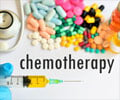Cancer treatments like radiation and chemotherapy often kill sperm stem cells, male reproduction can become essentially impossible.

- Cancer treatment during childhood often halts sperm production and affects fertility in adulthood.
- The drug Granulocyte colony-stimulating factor (G-CSF) stimulates the bone marrow to produce neutrophils.
- It was found that G-CSF can also preserve sperm production after chemotherapy.
While working on methods to restart sperm production, the researchers discovered a link between a drug for recovering cancer patients and the absence of normal damage to reproductive ability.
The drug is called G-CSF or granulocyte colony-stimulating factor. It stimulates the bone marrow to produce neutrophils, which are white blood cells that are needed to fight infections. They're commonly lost after chemotherapy and radiation treatments.
"We were using G-CSF to prevent infections in our research experiments," Hermann said. "It turned out that the drug also had the unexpected impact of guarding against male infertility."
Cancer treatments like radiation and chemotherapy often kill sperm stem cells, male reproduction can become essentially impossible. In Hermann's laboratory, G-CSF, by promoting cell growth, unexpectedly began regenerating sperm production by creating new sperm cells to replace the dead cells.
The next step would be observing whether the use of the drug, which is already prescribed often by oncologists, has any correlation with improved fertility among cancer patients.
"Male infertility is an intuitive disease and we need creative solutions," he said. "But we need to understand how things work before we can fix them."
Reference
- Brian P. Hermann et al., Granulocyte colony-stimulating factor (G-CSF) promotes spermatogenic regeneration from surviving spermatogonia after high-dose alkylating chemotherapy, Reproductive Biology and Endocrinology (2017) http://dx.doi.org/10.1186/s12958-016-0226-1.
Source-Medindia















